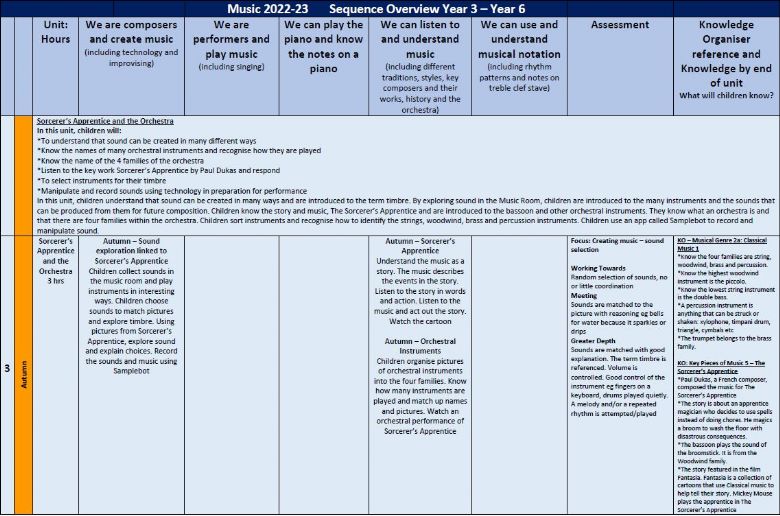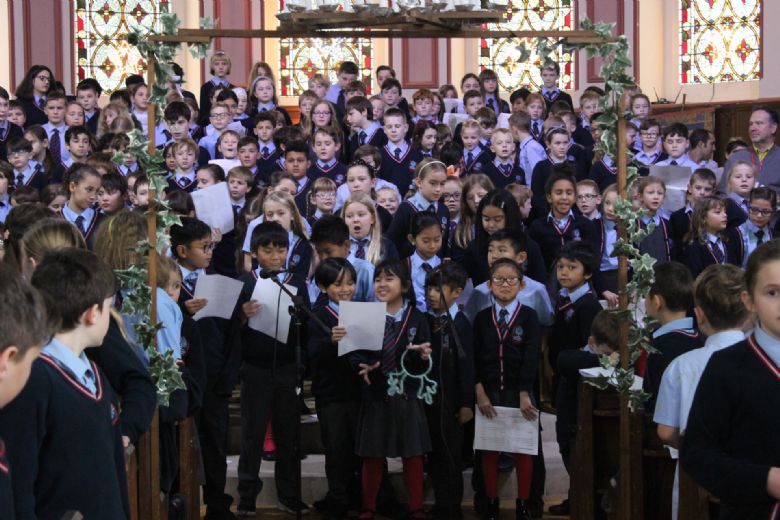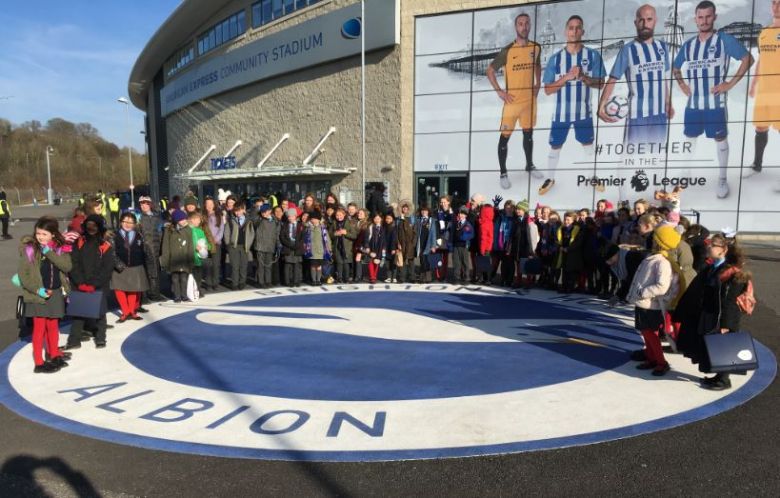Music Curriculum Content and Sequence
Music Curriculum Sequence Overview
TO DOWNLOAD THE FULL Music SEQUENCE OVERVIEW PLEASE CLICK ON THE IMAGE BELOW
music Vision
Children will be genuinely enthusiastic about music in all its forms; work confidently and competently with classroom percussion, keyboards and other instruments, including their voices; become innovative and capable musicians broadening their life opportunities. Children will understand clear links between their learning and real life – understanding how their developing knowledge and skills can be applied today, beyond school and in to adult life, including potential career paths.
All children, particularly disadvantaged children, have a strong sense of achievement through carefully structured lessons.
Learning will be highly focused on composing, performing and appraising. There is a focus on improvisation, singing, reading and recording music in standard and non-standard forms. Children will be inspired by composers, both historic and current, locally and nationally. Children will be exposed to a wide range of genres and excellent examples of songs and pieces of these genres broaden the listening repertoire.
Through the evaluation of past and present music from all round the world, children will develop a critical understanding of its impact on daily life, recognising that music makes an essential contribution to the creativity, culture, wealth and well-being of all communities.
Although music is a highly practical subject, learning will be underpinned by core knowledge, skills, concepts and vocabulary.
music principles
In line with the whole school curriculum policy, the following drivers and principles underpin everything we do in Music.
CURRICULUM DRIVERS
Life Opportunities Creativity Confidence Competence
CURRICULUM PRINCIPLES
Balanced Coherent Real & Relevant
Knowledge Rich Cognitively Challenging Inclusive
music strategy
As a result of high quality, specialist teaching; a well-planned and resourced curriculum; and regular opportunities for performance within school and the local community; pupils will develop the confidence to express themselves imaginatively and develop a love for music. Music will be used to foster the skills of team work and supports the ACRO model used throughout our school. Music is inclusive and provides the opportunity to feel a sense of achievement irrespective of academic ability and social and economic background within a safe environment. There are regular opportunities to compose using voice, real instruments and by using digital software in a range of styles. Children listen to a wide range of music from around the world, past and present, and respond creatively. Children have regular opportunities to reflect, self-evaluate and make improvements to their work. Music at Chesswood underpins social, emotional, spiritual and cultural values. Music will enhance the reputation of Chesswood and have a positive effect on all aspects of children's learning, engaging the wider community with the life of the school.
Life Opportunities
Music equips the children with confidence and the positivity to feel empowered enough to take opportunities and risks in life, building their self-esteem and self-worth, helping them to realise that there are no limits to what they can achieve. For example: public speaking, job interviews and presentations, and any unfamiliar social situations.
Career Aspiration:
Music opens doors to real jobs. Children evaluate and create music for computer games, BBC documentaries, film music and outlines jobs such as being a music producer, sound technician, composer and teacher, music reviewer, critic, therapist. Children are inspired by people from humble backgrounds such as Paul McCartney and Elton John.
Communication and transferable life skills:
Music develops the skills of trust, communication, collaboration, empathy, patience, consideration, resilience, independence, self-evaluation and reflection. Children are encouraged to work with others regularly on group projects and compositions. The roles of team leader and director are practised. Children are given regular opportunities to perform, record their music and self-evaluate, reflect upon, give feedback and improve their performance.
Inspiration:
Children are inspired by the achievement of friends, by great composers and works past and present. They appreciate the evolution of music and know how all composers and artists and styles of music have influenced each other. Music will continue to evolve and children are open-minded to this, they experiment and know they can lead the change.
Enjoyment:
Music is a gateway for self-expression, it can soothe and comfort, it is pure enjoyment; it improves concentration, coordination and positive wellbeing; it inspires. Music is for dancing and relaxing. Music evokes all emotion.
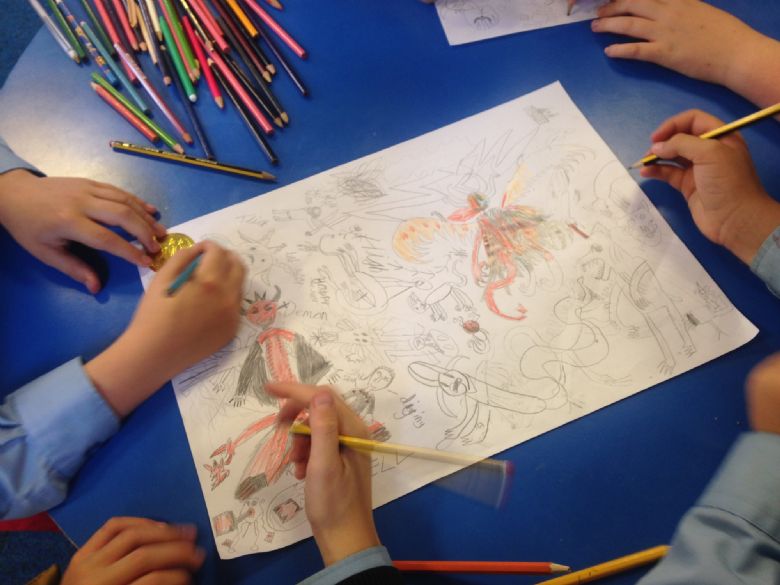
Creativity Confidence Competence
Creativity:
Children are taught how to improvise melodies using simple techniques. They are taught which combination of notes harmonise and which can be combined to make tunes; they know how to use the falling bass line and broken chords for accompaniment for example.
Composition is inspired by great composers and works, from poetry, from film, from characters and emotion in stories. Children are taught how to use technology and apps such as Garageband for sequencing, layering and looping. They regularly use tuned and untuned percussion, keyboards, bodies and voices. They compose in groups and independently.
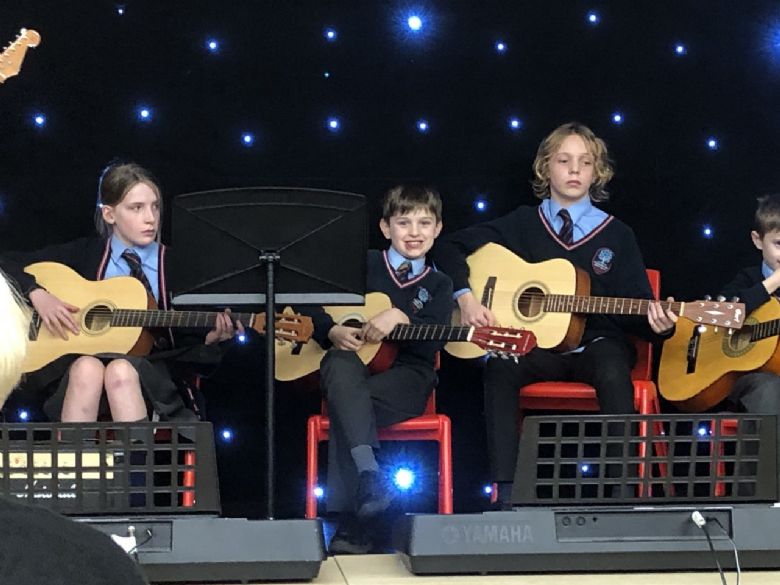
Confidence:
Children are empowered, have self-belief, self-esteem; they step out of comfort zones, feel safe in challenging situations, manage nerves and anxiety and recognise the limits of all. They regularly encourage and support their peers through performance opportunities: during lessons, concerts, assembly, school functions and in the community.
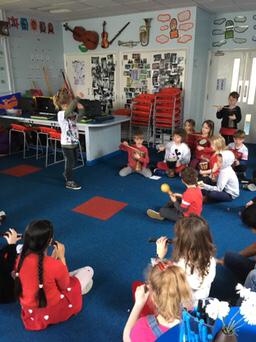
Competence:
Children know how to read notes on the stave in the treble clef and regularly read, write and record graphically and in standard forms. Children know where to find notes on a keyboard and can play simple tunes by heart. They know how to read, play, create and write 4 beat rhythm phrases.
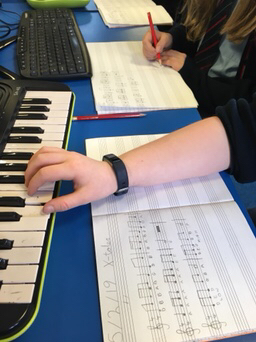
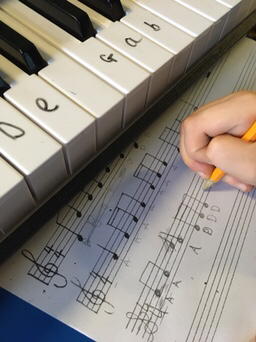
Performance:
Children perform at Christmas, in concerts throughout the year, the Stars of the Future Concert, end of year productions, assemblies, as part of the choir and other music groups, in lessons, and occasions such as Armed Forces Day and school functions. They perform in the community: care homes, town centre, hospital, Assembly Hall, with other schools. Children have performed in the past at the AMEX football stadium, at Wembley, at Disneyland.
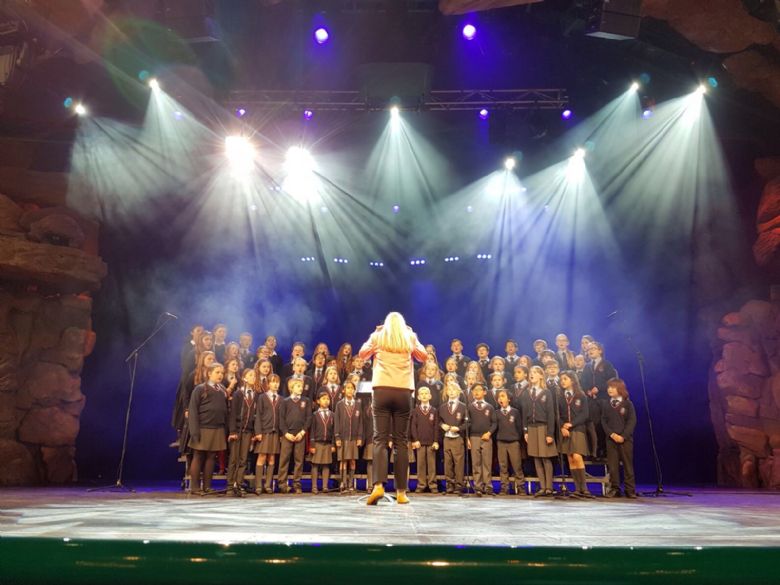
Balanced
Children have an hour of music each week in a specialist, well-resourced music room with a specialist music teacher. There are many additional opportunities to take part in musical activities throughout the year: the school production, Christmas concerts and clubs such as Choir, Recorder Club and Boys’ Choir.
Activities that develop skills and knowledge in composition, performance, playing, improvising, singing, and appraising are carefully planned each half term for each year group. There is consistency in teaching and progression for each year group and for supporting and stretching groups and individuals.
Coherent
Knowledge, skills, concepts and vocabulary in music are coherently planned and sequenced progressively. There is clarity about what getting better at the subject means, with the aim of moving children from novice to expert. The music leader has autonomy to build and oversee the music curriculum, ensuring they have a full understanding of the progressive journey children have through the units planned
Real and Relevant
Music is rooted in real and relevant experiences for children: in celebration and occasion, in different cultures within the school community and around the world; in the context of placing real composers in real time and with real lives past and present. Singing in the local community to a variety of audiences: care homes, Armed Forces Day, in the town is an integral part of making music real and relevant. Music is used throughout the year to calm, energise, reassure and de-stress and to promote positive mental well-being.
Knowledge Rich
The music curriculum seeks to sequence skills and knowledge effectively, ensuring that children have a good understanding of core knowledge to enable them to progress from unit to unit. Core knowledge and skills (procedural knowledge) are specified in detail and laid out in knowledge organisers for the key strands: composing, performing, listening and appraising, singing, playing, performing and reading and writing standard notation.
Cognitively Challenging
The music curriculum seeks to introduce children to the best of what has been written and the key innovators – the composers and works that have inspired so many around the world and continue to inspire. Units are chosen specifically to stretch children’s knowledge and skills development, with a key focus on core technical vocabulary and understanding.
Inclusive
The music teacher gets to know the ability and potential of all children quickly and recognises strengths and talent particularly of disadvantaged children or those with SEN. Opportunities are encouraged and promoted for these children to play instruments and join Music clubs and play a huge part in whole school productions and performances.
Music appreciation is for everyone – it can be accessed by all abilities and interpreted at so many different levels. It does not discriminate.

